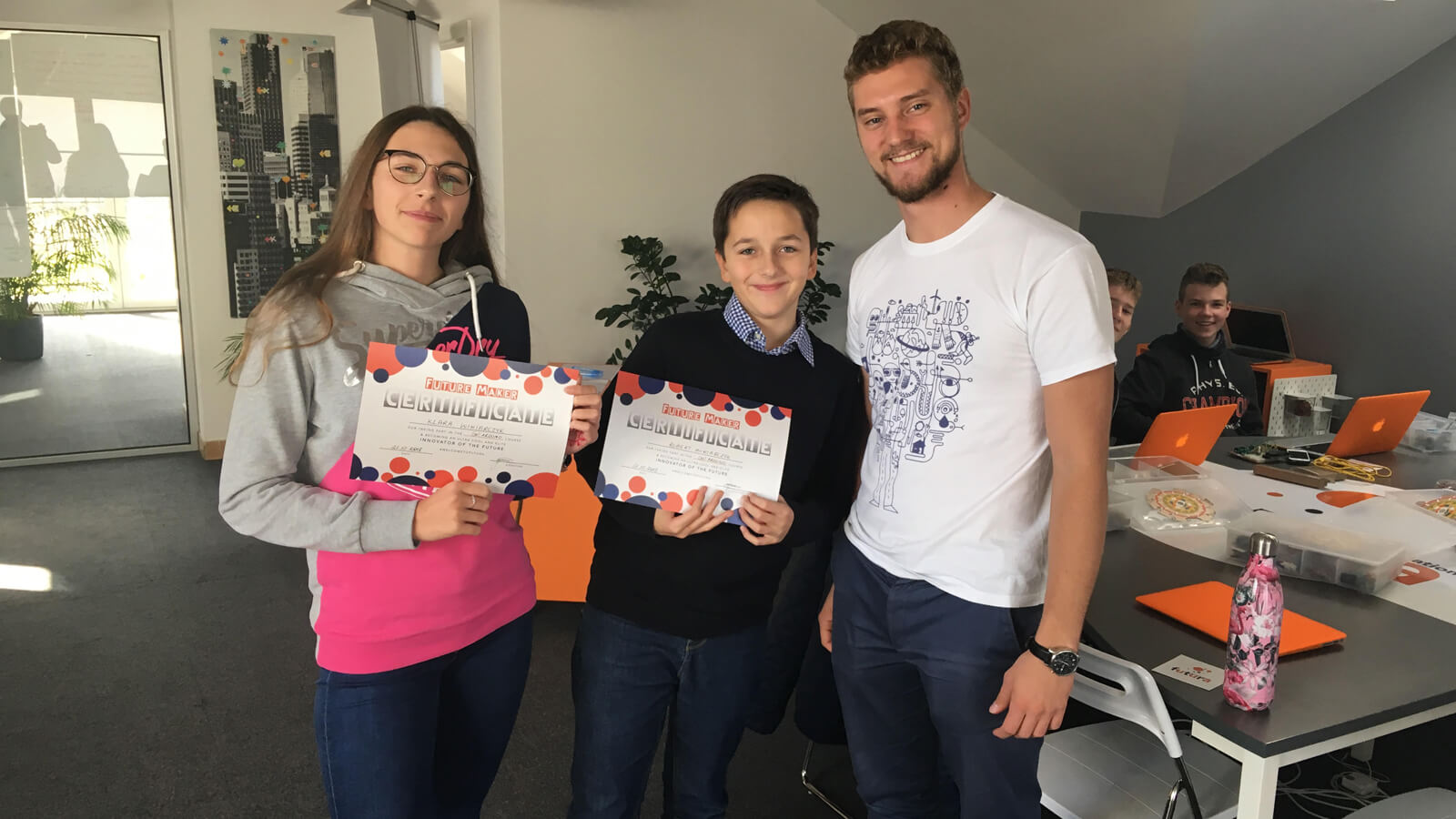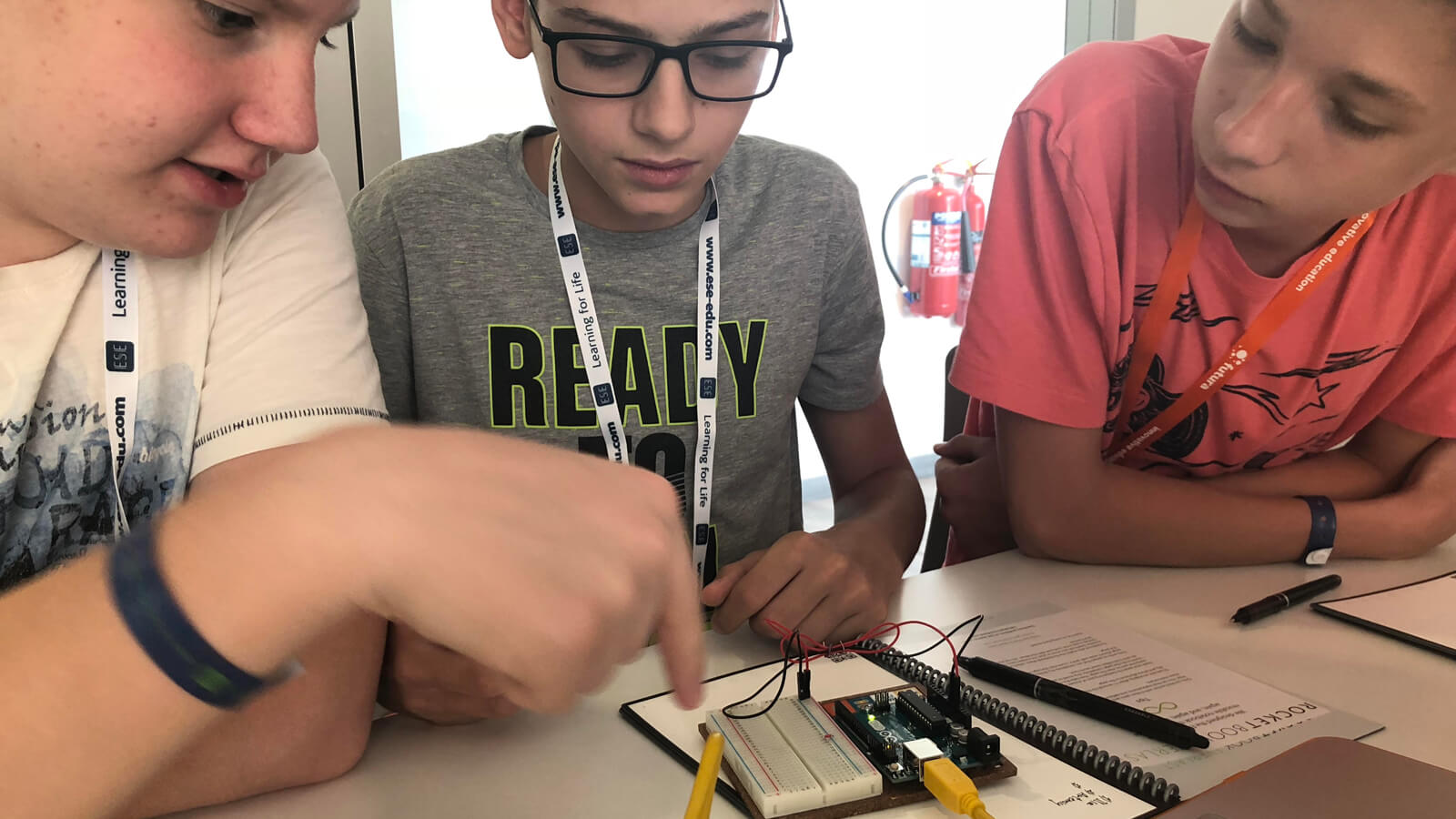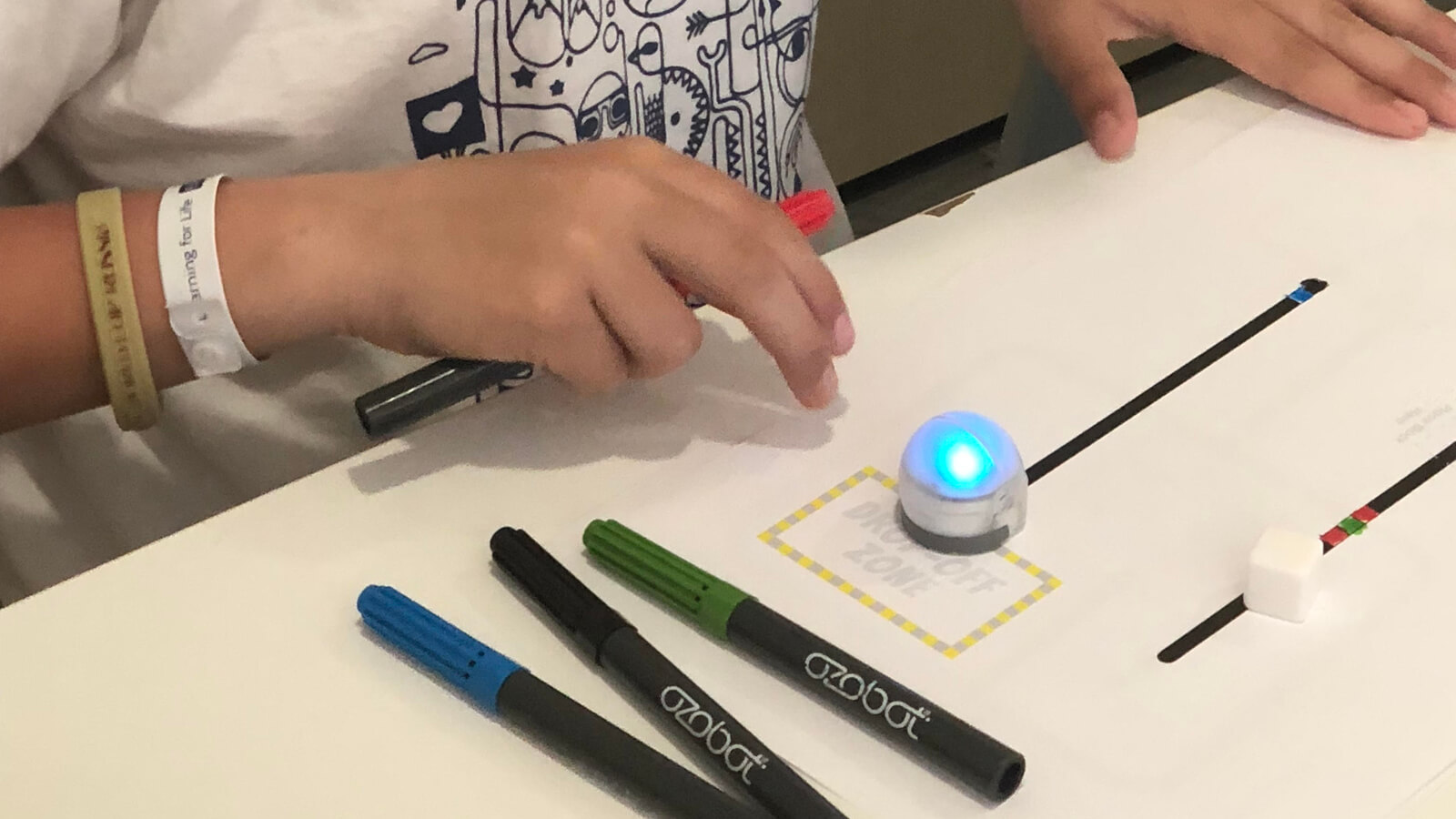
FUTURA Innovative Education organizes plenty of coding workshops. Each pupil gets a certificate after attending a workshop.
FUTURA Innovative Education
Are you sometimes thinking of what kind of skills your kids will need to make it in let’s say 10-20 years? Seems long but a lot can change and according to numerous studies kids need to develop the right set of skills in order to be successful in the workplace of the near future. Skills like analytical thinking and social skills (finding as a team a solution to a given problem) will become more and more important. Coding is also a skill that your kids will have to master to make it in the ‘New world’. Some time ago I met Margaret whom I heard talking during an expat meet-up event about her ideas of what curriculums should provide. They needed tutors for their project Futura Innovative Education to act as a pilot project, training kids between 7 and 18 years in various tech domains (coding, robotics, etc.). Thank you Margaret Winiarczyk for your time to meet me.
Background
Margaret’s background is in marketing, sales and business strategy. The idea of starting FUTURA came to her whilst she was travelling in Argentina two years ago. She saw the dismal poverty of the slums and the inequality in access to education which brought her to think:
What will the future bring to all of us and what can we do to create a balanced society in which we can all have a chance to thrive and grow.
Without the right type of education this will never be possible. And she is of course referring to an education which goes beyond the boundaries of income and social status. Education will change, it has to! In some years time it will be skill-based learning, aiming to develop soft skills such as empathy, collaboration, communication, logical thinking, team work etc. The Chinese billionaire Jack Ma already said it eloquently…
Skillbased learning
In short, as Jack Ma already warned us, those 21st century soft skills are not taught at school and are all too often ignored in school systems worldwide. In today’s digital world, traditional education based on the transfer of knowledge by teachers who provide students with facts and figures is no longer enough. FUTURA and therefore Margaret, believes that in order to thrive in today’s world we all need those skills much more now than before. Why? Because as automation and Artificial Intelligence (AI) take over routine tasks we need creative and open-minded people to be innovative and find new solutions to existing problems, develop new strategies for enhancement etc. There is no better way to help young people develop those skills than working with them in their own familiar environment which is more and more digital based. Hence we embed in a curriculum built around hard skills such as coding, hardware development and gaming, the soft skills which we already know are key to career success in the very near future. And we are talking about now and the next 20 years to come.
The people that get involved in this project are people who understand FUTURA’s mission. They come from diverse backgrounds and I would love to see a more international community built around the concept of FUTURA. – Margaret Winiarczyk
The challenge is first of all to prepare children and young people to perform new professions that have not yet been defined. Teachers do not know what scope and form of knowledge can be useful in 10 years, because no one knows how digitization will affect the development of the labor market (dixit Jack Ma in the video ).

FUTURA Innovative Education is a lot about teamwork, trying to act as a team to find a solution to problems that need to be solved.
The Philosophy
Asking about why she chose the name Futura for the project, I would never have thought how deep the philosophy of thinking of a seemingly banal name as Futura could go…
In typography Futura is a geometric typeface designed by Paul Renner, one of the most successful and most-used types of the recent century. In his work, Renner was considered a type of bridge between the traditional and the modern just as education should bridge tradition and innovation.
FUTURA is also the name of one of the most prominent graffiti artists, illustrators and graphic designers of our time. Born in 1955, Leonard Hilton McGurr formerly known as Futura 2000, has created unique pieces of art, painted backdrops for live on-stage rock concerts, shown his work in world-famous galleries and even designed a special edition Hennessy V.S. bottle. His creativity and imagination have inspired such brands as Nike, North Face, Levi’s and Medicom Toy.
And last but not least, FUTURA simply means the future 🙂
Coding Camps
FUTURA Innovative Education organizes after school clubs, summer camps (for example sailing combined with coding workshops), weekend bootcamps and individual training sessions. These training sessions combine elements of STEAM (especially the “A”) with life skills to give a holistic approach to skill building and personal development.
STEAM fields are science, technology, engineering, art, and mathematics, or applied mathematics.
– Wikipedia
Kids don’t learn how to code without learning how to communicate their ideas, prototype new solutions, present and discuss their ideas and learn from each other. FUTURA does not teach how to code or program, FUTURA simply opens the door to a fascinating digital world where the human interaction is the basis of every well-written line of code.

Futura is working creatively in such a way that coding or engineering becomes fun which lays a strong basis to develop analytical skills later.
The Mission
Observing pupils in a group, we see that children are “opening up”. The idea, as Margaret states, is to stimulate their natural curiosity of the world, creativity and the desire for self-expression. Timid children, who look bored, engage in projects, begin to openly communicate in a group. Tutors are no longer needed at this stage. Children learn from each other.
The mission is to support young innovators of the future in their development. FUTURA is a project based on the US-British educational program in the field of technology and life skills. The project promotes critical and computational thinking. In addition the tutuors are trained to develop creativity and entrepreneurship, i.e. the competences of the future, while valuing the joy of creation and self-confidence as well as the abilities. The goal is to inspire and stimulate the imagination, which is the source of unlimited possibilities and ideas.
Lifelong Learning
The innovation of this method consists of a two-way exchange of knowledge and competence between the tutor and children. The tutors are mentors and encourage children to solve problems in the group, not mainly by using the tutor’s knowledge and experience. Failure is only the next stage of the process of discovering and creating new solutions. It is part of lifelong learning. Some countries are highly advanced because of their approach to and insights in what efficient education should be, like for example Finland…
Fun Stimulates Creativity
Fun frees the imagination, opens the mind and helps generate new ideas and solutions. In education, the most important thing is stimulating creativity. Finland is considered to be one of the most innovative countries in terms of the education system. One of the pillars of the Finnish educational system is fun. According to American research, “… play is conducive to cognitive, social, emotional and physical development”. In fact, most children in Finland do not start first-class education until they are seven years old. Until that age, children learn most of their time through play and fun.
Target Group
FUTURA welcomes all children between the ages of 7 and 18. “Soon we will introduce new courses for children under the age of 5. We run classes in English and Polish, which is an excellent opportunity to develop language skills. Most importantly, our offer is very flexible and we offer courses as extracurricular activities in schools, weekend courses in our InventSpace in Gdynia, semi-camps combined with e.g. sailing, boot techcamps, etc.”, explains Margaret.
The Outcome
It will show how to wisely and creatively use the technological tools that surround us. For example, the idea is to encourage girls to learn programming in particular, but not because girls necessarily have to become programmers (although women are great at this type of work), but because, basically, regardless of gender, the development of skills such as logical thinking, critical thinking and entrepreneurship are useful at every stage of life. Learning to code is a great tool for developing these skills. Regardless of whether it is technology courses that are offered or those that focus on the subject of entrepreneurship, FUTURA students have the opportunity to develop vital skills that the school unfortunately does not offer.
